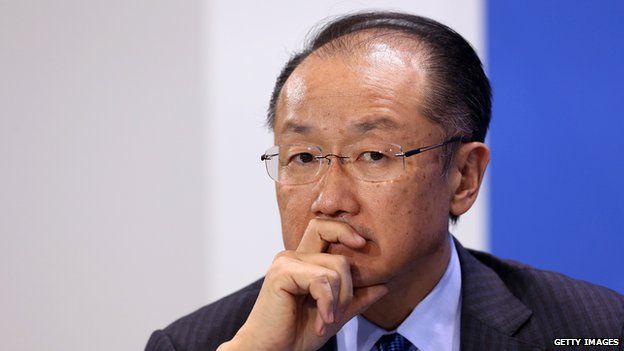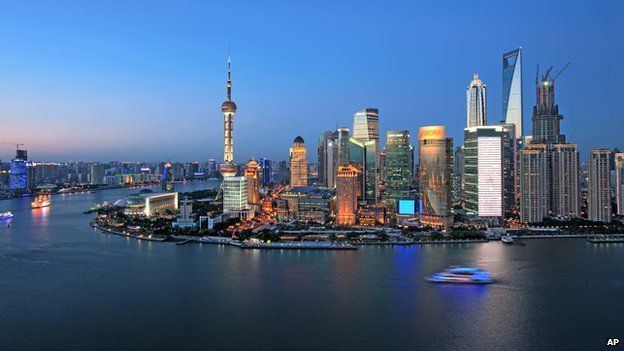Could poverty be eradicated in the world
Is it possible to end global poverty?
Linda Yueh
Chief business correspondent
- Published
Later this year, the UN is expected to adopt the World Bank's ambitious target of ending extreme poverty by 2030.
It would mean that for the first time, everyone in the world would able to afford a refrigerator and other goods that would make life a bit easier.
But, what would it take? Could we really see the end of poverty within a generation?
First, there's been a great deal of progress already.
The poverty rate in the developing world has more than halved since 1981. Back then, 52% of people in developing countries lived on less than $1.25 (84p) per day. That's now dropped to 15%.
In terms of the UN's Millennium Development Goals, it meant that the target of halving poverty by 2015 from 1990 levels was achieved five years early. In 1990, more than one-third (36%) of the world's population lived in abject poverty. That was halved to 18% in 2010.
But, it was due largely to China. So, there are still about a billion people who live in extreme poverty.
Sub-Saharan Africa is the only region where the number of poor people has increased during the past three decades.
Even though the percentage of the African population living in extreme poverty is slightly lower than in 1981 - population growth means that the number of people has actually doubled.
They account for more than one-third of the poor in the world, despite Africa making up just 11% of the global population.
By contrast, in East Asia, progress has been remarkable. four out of five people, or 80%, lived in poverty in 1981, and that rate has now dropped to 8%. On current trends, the fastest-growing region in the world could see the end of poverty within a generation.
'Frictional poverty'
But, what about the billion people who still live in poverty?
The World Bank projects that it's possible to end extreme poverty by 2030. But, it would take a heroic effort. The number of people in poverty will have to decrease by 50 million each year. That is the equivalent of about a million people each week for the next 15 years.
 IMAGE COPYRIGHTGETTY IMAGES
IMAGE COPYRIGHTGETTY IMAGESI asked the World Bank President Jim Yong Kim if it was achievable. He was confident, but emphasised that it would require funding and a raft of targeted policies to raise incomes and productivity.
He praised countries like the UK who could commit 0.7% of their GDP to development, and added that it would bolster British "soft power" abroad. That'll be welcome to those who have been debating the UK's role in the world amidst cutbacks.
In these debates, definitions also matter. So, what precisely does the end of poverty look like? It doesn't mean that no one lives on less than $1.25 per day.
The World Bank assumes that a 3% poverty rate is equivalent to the end of poverty since there will be some who move in and out of poverty, for example when they lose their jobs, so there will always be some "frictional" poverty.
Even so, the task of reducing poverty at that pace is so daunting that economists forecast that the global poverty rate is more likely to be 8% in 2030. That works out to be about 664 million people still living in poverty out of an estimated 8.3 billion people on the planet.
Which policies could work to get us to that outcome?
 IMAGE COPYRIGHTAP
IMAGE COPYRIGHTAPFor China, which has accounted for the bulk of the poverty reduction in the past few decades, the answer is economic growth.
However, Paul Collier of Oxford University calls the China precedent "misleading" when it comes to lessons for Africa. He points out that income growth in Africa has been based on natural resources and the gains are not widely shared.
China's context is that of an economy transitioning from central planning and under the governance of a one-party state. That means, for instance, land is all effectively owned by the government.
It doesn't mean that some haven't become very wealthy developing land based on government favour. But it means that wages and self-employment have accounted for most of the rise in incomes, and not land or resources.
These aren't the only reasons for China's poverty reduction, of course, or for East Asia which has seen such dramatic falls in poverty. But, in particular, China has not relied on external aid.
African focus
The evidence of the impact of aid on reducing poverty across countries isn't compelling even though there are successful in-country examples, which has led to a heated debate over the effectiveness of international aid.
Kevin Watkins, head of the Overseas Development Institute (ODI), believes that there is a role for aid to play, but there needs to be an overhaul of the way that it is used. Paul Collier agrees and argues that aid should be used to attract private investment in some of the poorest countries in Africa.
So, it's hard to draw lessons from the past two decades in terms of the remaining stubborn pockets of poverty. After all, Africa has been the second-fastest growing region in the world, but hasn't seen falls in the number of the poor.
For instance, Tanzania, which has grown well and been devoid of conflict, has seen the number of poor rise from nine million two decades ago to 15 million today.
South Asia also lags in terms of the progress made in East Asia, so you can't just count on growth to lift the bottom billion out of poverty. However, policies such as raising agricultural productivity - something that Henrietta Moore of UCL argues for - would help.
Doubtless, the circumstances of individual countries matter a great deal in terms of what works. But, if the progress made in the past couple of decades can be replicated in some fashion - and tailored to individual countries - then it's possible that another 18% of the world population can be lifted out of poverty. It would indeed mean the end of poverty in our lifetimes.
To paraphrase Nobel Laureate Robert Lucas on economic growth, once you start thinking about it, it's hard to think about anything else.
Watch a special Talking Business with Linda Yueh on Fridgenomics, part of A Richer World season: bbc.co.uk/talkingbusiness. And listen to a special Business Daily on the World Service on Friday.
Related Topics
- Get link
- X
- Other Apps
Comments
Post a Comment